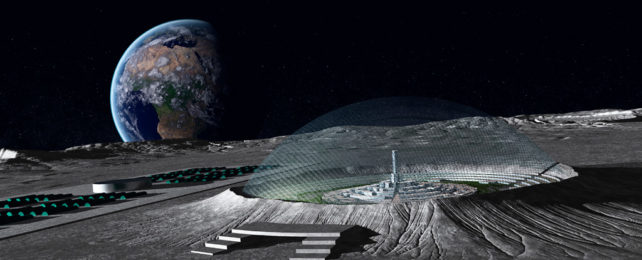Humans are on track to live and work on the Moon by 2030, a NASA official has said.
"We're going to be sending people down to the surface and they're going to be living on that surface and doing science," said Howard Hu, who leads the Orion lunar spacecraft program for NASA, the BBC reported Sunday.
NASA successfully launched its powerful new Space Launch System, or SLS, rocket last week, sending the Orion spacecraft on its way towards the Moon.
The launch, which had been repeatedly delayed, set NASA's Artemis missions in motion, the first major step towards putting humans back on the Moon in almost 50 years.
Orion is uncrewed this time around, as it aims to test its ability to bring a capsule to the Moon and back. But next time it is expected to take astronauts with it as it circles the celestial body.
If all goes well, the same spacecraft could then be used to put humans on the Moon's surface, for the first time since 1972, including the first female astronaut.
The current plan is for the crew to land near the Moon's south pole, where they will spend about a week looking for signs of water. If the precious liquid is found, it could be used to help fuel rockets on their way to Mars.
This would mean permanent human settlements would need to be built to support mining and scientific activities.
"It's the first step we're taking to long-term deep space exploration, for not just the United States but for the world," Hu told the BBC's Laura Kuenssberg.
Orion was due to fly by the Moon [on Monday] around 7:44 am ET (12:44 pm UTC). You can watch NASA's live coverage here
This article was originally published by Business Insider.
More from Business Insider: